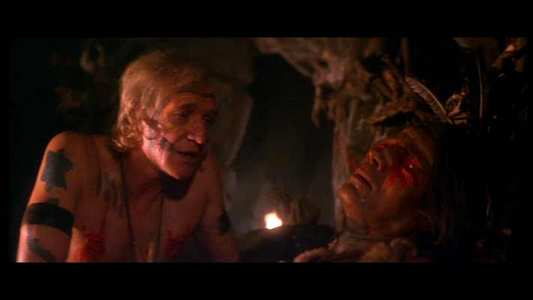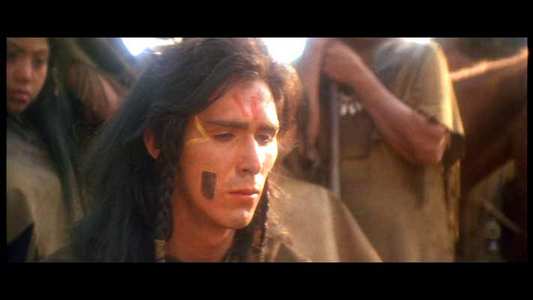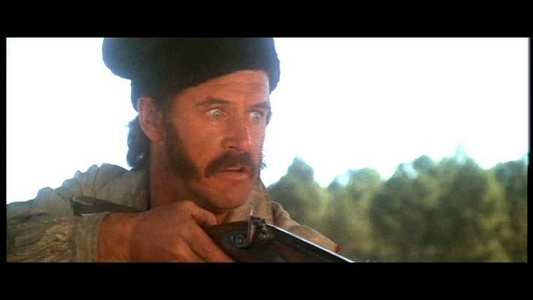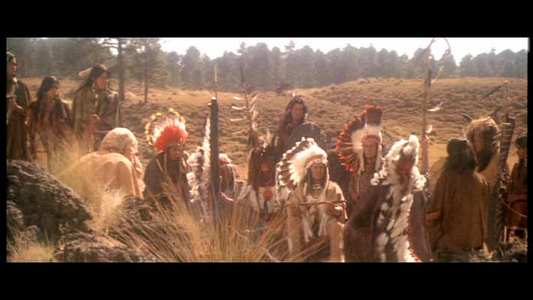Review of Return of a Man Called Horse, The
Introduction
In 1970 Elliot Silverstein released a film called The Man Called Horse, which starred Richard Harris as Lord John Morgan, an English aristocrat captured by Sioux Indians of the Yellow Hand tribe. Living with them, he learns to understand their traditional way of life and becomes a valued member of their tribe.
Six years later, the Irvin Kershner-directed sequel arrived and Morgan has left the tribe and returned to England where the story picks up in the 1840`s. Unknown to him, a band of trappers and their Indian allies attack the Yellow Hand tribe in an attempt to drive them from their land. The trappers take many squaws prisoner as slaves, whilst the remaining survivors trek into the mountains to await their fate at the hands of their gods. Meanwhile, Morgan is feeling a spiritual longing and decides to return to the Yellow Hand tribe for a year in order to fill the void in his life.
Morgan is shocked to discover the wrecked camp of his tribe and ventures into the nearby fort in the guise of a surveyor to try to discover what has happened. The trapper leader Zenas (Geoffrey Lewis) sends one of his men after Morgan, suspecting he is a spy for a rival company. Getting the jump on the man, Morgan discovers where his tribe have vanished to and heads off into the mountains. He is initially welcomed by all and disperses presents to every one in the tribe, until the intervention of medicine man Raven who believes that the evil spirit is unhappy with the demoralised tribe and that they must undergo hardship until they satisfy him.
Morgan tries to make them all see reason but then realises that he must undergo tribal ritual and suffer for his people before he can attempt to reason with any of them. He fasts for four days and four nights, at which point he starts to hallucinate and has a vision. Following this he performs the Sun Dance in an attempt to restore the Buffalo spirit to his people. Starting alone, he finds the younger members of the tribe joining him as they undergo the self-torture required to renew their tribe. A thunderstorm causes the ritual to prematurely end for many, although Morgan and a young boy complete the Sun Dance fully which lifts the cloud over the Yellow Hands.
After a skirmish during a buffalo hunt, Morgan realises that the Yellow Hand are too few in number to take their land back by direct force and so a delegation is sent to meet Lakota chief Red Cloud to ask for his assistance. This request is met with derision as the Lakota believe the trappers to be their friends, and so Morgan trains the women and children in the tribe in order to bolster their attack force. Using skill and cunning, the Yellow Hand attempt to gain the upper hand against superior forces and regain their land…

Video
The print is in remarkably good shape and very colourful. There are some artefacts on the print but nothing to spoil viewing.

Audio
Dolby Digital 2.0 Stereo soundtracks in English and a host of other languages plus subtitles as well. The score by Laurence Rosenthal is quite epic in it`s scale, and sets the scene brilliantly.

Features
Ha, you must be kidding, right? This is MGM, after all…

Conclusion
I haven`t seen the original but I was quietly impressed with this film. Typically most Westerns of the period seemed to portray the Indians (or Native Americans) as the eponymous bad guys whooping and a-hollering around circled wagon trains whilst the plucky settlers attempt to protect their children and women-folk from the savages. Here there is an attempt to portray the Indian (or more accurately the Sioux) lifestyle as traditional and honourable.
The film moves quite slowly around the middle section as Morgan immerses himself back into the Sioux way of life he left for dear old Blighty, but is the better for taking the time to set the right atmosphere. This is really what this film is about and the fights that bookend this film are just a way of showing life before and after Morgan`s return. Harris is cast well as the aristocrat more at home with the Sioux than his English estate and church-going peers, and Geoffrey Lewis gives another good performance in the role of the bad guy.
Obviously this film has been surpassed now by the Costner epic Dances With Wolves, but this deserves a mention for getting there first.
Your Opinions and Comments
Be the first to post a comment!